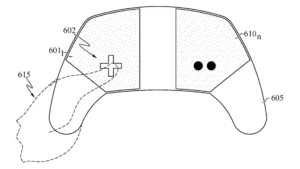The proposed India–UK Free Trade Agreement (FTA) has sparked major concerns among civil society groups, especially regarding its impact on access to affordable medicines. Leaked drafts suggest the deal may include TRIPS-plus intellectual property (IP) clauses, which could extend patent monopolies, delay generic drug production, and ultimately raise medicine prices for millions.
Leaked IP Provisions Raise Red Flags
Health organisations like Médecins Sans Frontières (MSF) and the Trade Justice Movement (TJM) have criticised the draft IP chapter of the FTA. These provisions reportedly go beyond the World Trade Organization’s TRIPS (Trade-Related Aspects of Intellectual Property Rights) agreement, which currently governs global IP standards.
Key problematic provisions include:
- Evergreening of patents: This tactic allows pharmaceutical companies to make minor changes to existing drugs and renew their patents, thereby blocking generic competition.
- Patent term extensions: Companies may gain longer exclusive rights beyond the standard 20-year patent term.
- Data exclusivity: This prevents generic manufacturers from using clinical trial data to gain regulatory approval, even after patents expire.
- Ban on pre-grant opposition: The FTA may restrict Indian legal provisions that allow public and civil groups to challenge weak or frivolous patent applications before approval.
- IP enforcement measures: These could empower customs authorities to block exports of Indian generics, even when legal in the destination country.
Read more about TRIPS-plus concerns here.
India’s Role as Global Generic Drug Supplier
India is often called the “pharmacy of the Global South”, supplying affordable generics for diseases like HIV, tuberculosis, cancer, and malaria. Millions across low- and middle-income countries depend on Indian-manufactured generics for survival.
According to MSF, any disruption to India’s generic drug industry could have serious public health consequences worldwide.
In addition, India supplies around 25% of the UK’s NHS medicines. A weakened Indian pharma sector could also raise drug costs in the UK.
More on India’s generic drug exports
FTA Offers Economic Gains, But at What Cost?
The India–UK FTA aims to strengthen bilateral trade. It promises tariff-free access for Indian exports and could boost sectors like pharmaceuticals, automobiles, and textiles. UK exports, including medical devices and healthcare technology, are also set to benefit from reduced import duties in India.
The Federation of Indian Export Organisations (FIEO) and PHD Chamber of Commerce and Industry (PHDCCI) have expressed optimism about the deal’s economic benefits. However, they remain cautious about its potential implications for public health and medicine affordability.
View economic implications here
Public Health at Risk
Health experts warn that introducing TRIPS-plus standards could delay access to life-saving medicines, especially for diseases like tuberculosis and HIV, where timely treatment is crucial.
Generic versions of key drugs like delamanid and bedaquiline could be delayed, making them unaffordable for many patients. India’s current patent laws, especially Section 3(d) of the Indian Patents Act, have helped prevent evergreening and encourage generic competition.
“The proposed IP provisions will impact not just India but also people across the world who rely on Indian generics,” said Leena Menghaney of MSF’s Access Campaign.
Ongoing Advocacy
Multiple campaigns have urged India and the UK to remove harmful IP provisions from the FTA. Activists argue that trade agreements should not undermine public health for corporate profits.
The UK Parliament has also raised concerns. Lawmakers like Nick Thomas-Symonds have warned that such provisions could increase the NHS’s drug bill while harming patients globally.
Read The Guardian’s editorial on this issue
Final Word
While the India–UK FTA has the potential to deepen trade and boost exports, public health must not be sacrificed for profit. Stakeholders continue to call for transparency in negotiations and protection of India’s legal tools that ensure access to affordable medicine.
Disclaimer:
This article is a factual, independently written report based on publicly available sources and does not represent the views of any government or organization. For more, see The Federal’s original coverage.




